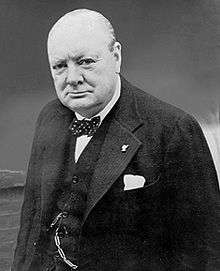My Early Life
 Cover of a paperback edition of My Early Life, 2011 | |
| Author | Winston Spencer Churchill |
|---|---|
| Country | England |
| Subject | Military campaigns |
| Genre | Autobiography |
| Publisher |
T. Butterworth, London C. Scribner's Sons, New York |
Publication date | 1930 |
My Early Life, also known in the USA as A Roving Commission: My Early Life, is a 1930 book by Winston Churchill. It is an autobiography from his birth in 1874 up to approximately 1902.
A significant portion of the book covers his experiences in the Second Boer War of 1899-1902 which he had earlier described in London to Ladysmith via Pretoria (1900) and Ian Hamilton's March (1900). It also includes descriptions of other campaigns he had previously written about: The River War (1899), concerning the reconquest of Sudan, and The Story of the Malakand Field Force (1898) in today's Pakistan. The book begins by describing his childhood and schooldays, and provides context for the earlier accounts.
Background

The introduction notes that Churchill endeavoured to write the book from his point of view at the time of the events, but it contains different commentaries on the events described in the other books, many of which were originally written as contemporary newspaper columns. From his perspective of writing in 1930, he notes that he has 'drawn a picture of a vanished age'. The book also notes an observation by the French ambassador to Britain between 1900 and 1920, that during his time a silent revolution had occurred which totally replaced the ruling class of Britain.
The book was published after the Conservative Party lost the 1929 election and consequently Churchill ceased to be a member of the government. He occupied himself instead writing a number of books, which together with public speaking was his chief source of income throughout his life. However, most of My Early Life was written during the parliamentary recess in the summer of 1928. He wrote to Stanley Baldwin, "I have had a delightful month - building a cottage and dictating a book: 200 bricks and 2000 words per day."[1]
The first English edition published by Thornton Butterworth in October 1930 sold 11,200 copies, and the American edition published by Charles Scribner's Sons sold 6,600. Scribner's titled the book by the name of its UK subtitle, A Roving Commission. It was translated into thirteen languages. It has been considered by some to be his best book and one of the outstanding works of the 20th century. This is because it was deliberately written to be much shorter than his typical books, with a slight sense of irony and an intention to entertain. It contains a certain level of self-mockery alongside criticism of others he encountered. Unlike some other of his works, it did not seek to prove any particular point.[2]
The book includes an observation made upon the death of his nanny. He wrote "She had been my dearest and most intimate friend during the whole of the twenty years I had lived."[3]
Book
- 1. Childhood
- 2. Harrow
- 3. Examinations
- 4. Sandhurst
- 5. The Fourth Hussars
- 6. Cuba
- 7. Hounslow
- 8. India
- 9. Education at Bangalore
- 10. The Malakand Field Force (in today's Pakistan)
- 11. The Mamund Valley
- 12. The Tirah Expedition
- 13. A Difficulty with Kitchener
- 14. The Eve of Omdurman (in today's Sudan)
- 15. The Sensations of a Cavalry Charge
- 16. I Leave the Army
- 17. Oldham
- 18. With Buller to the Cape
- 19. The Armoured Train (in today's South Africa)
- 20. In Durance Vile
- 21. I Escape from the Boers-I
- 22. I Escape from the Boers-II
- 23. Back to the Army
- 24. Spion Kop
- 25. The Relief of Ladysmith
- 26. In the Orange Free State
- 27. Johannesburg and Pretoria
- 28. The Khaki Election
- 29. The House of Commons
Film
The film Young Winston was based on this book.
Publication history
- Thornton Butterworth: London, 1930.
- Charles Scribner's sons: New York, 1930.
- 1990. ISBN 0-7493-0202-X (paperback)
- Eland: London, 2000. ISBN 978-0-907871-62-0
References
- ↑ Jenkins p.421
- ↑ Roy Jenkins (2001). Churchill. Macmillan. pp. 420–421. ISBN 0-333-78290-9.
- ↑ T. E. C. Jr. M.D (5 November 1977). "Winston Churchill's Poignant Description of the Death of his Nanny". PEDIATRICS Vol. 60 No.: 752.
